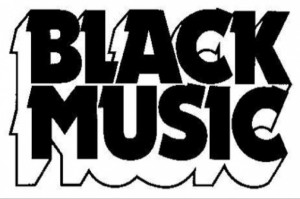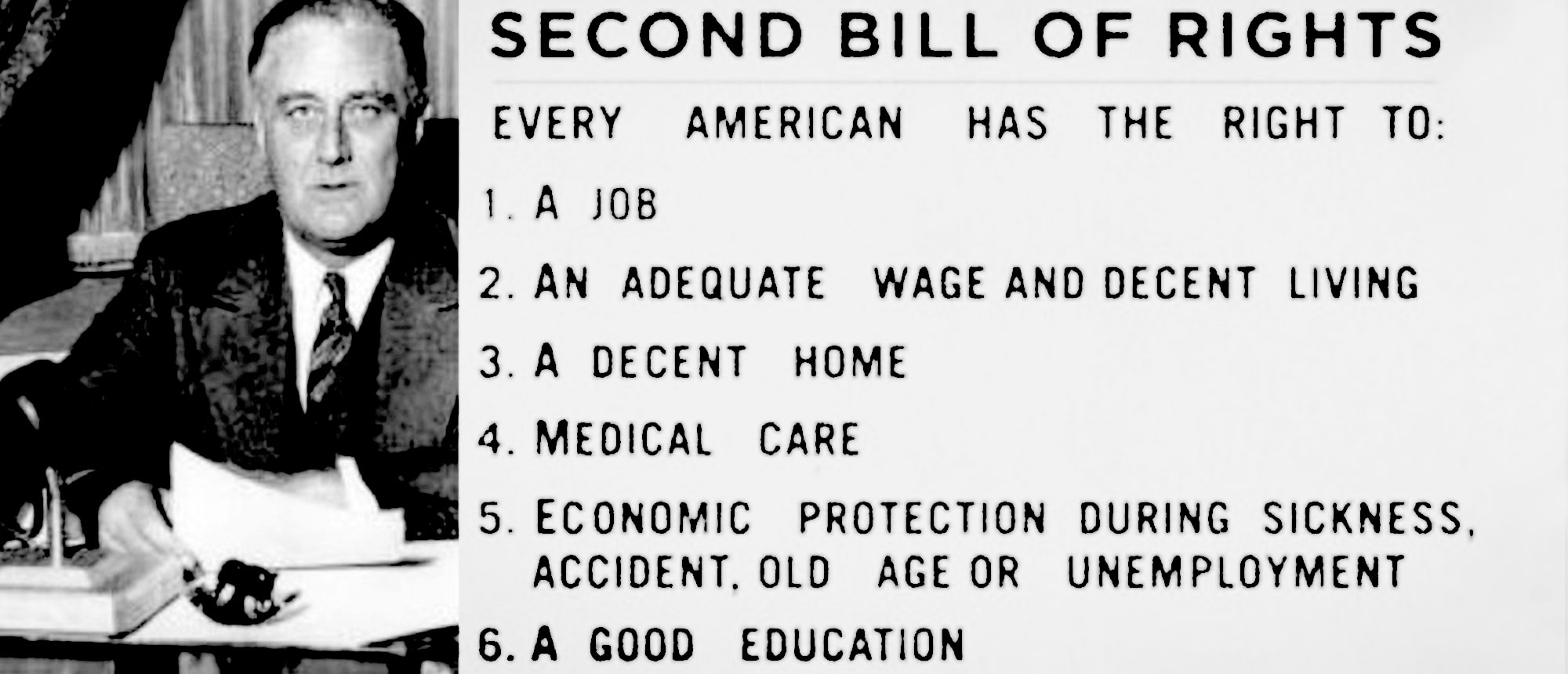(ThyBlackMan.com) Stop and listen for a minute … have you ever noticed that the whole world is listening to our music?
Then take a minute to wonder … how is it, if our music is being bought and sold across the whole world, that we as a community of Black people remain impoverished?
A little history is in order. Every form of popular music where music was bought and sold in the 20th century, in the United States, in Western Europe, and even as far distant as Russia, has been influenced by or descends directly from the music of our West African ancestors brought to the Americas as slaves. From the time the students at Fisk and Hampton Universities went out singing the Negro Spirituals to the time hip-hop hit the scene about a hundred years later, we have provided the music the world wants to hear – and that’s not even counting the impact of African music on the whole “Latin” genre!
I ask again: why are we so impoverished as a people if Black people have generated the backbone of value in all music bought and sold in large scale for the last 140 years?
Let’s consider this from another angle, limiting the descent of popular music to our ancestors who arrived in North America. From the Negro Spiritual and its more secular counterparts, the field work songs and shouts, blues, jazz, and  gospel were derived shortly thereafter. And I defy anyone to find any popular music anywhere in the English-speaking world in the 1900s, 1910s, 1920s, 1930s, 1940s, 1950s, 1960s, 1970s – well, ever since – that is not in those genres or derived from them.
gospel were derived shortly thereafter. And I defy anyone to find any popular music anywhere in the English-speaking world in the 1900s, 1910s, 1920s, 1930s, 1940s, 1950s, 1960s, 1970s – well, ever since – that is not in those genres or derived from them.
And lest there are any devotees of European classical music reading, don’t think I am leaving that so-called bastion of pure European expression out – the Spirituals and work songs are contemporary with and had a dramatic effect on classical music. I am a classically trained pianist, and I know what I say: I defy anyone with an unbiased ear to listen to Beethoven and not hear the effects of Africa on several of his works. I will give you three big hints: go listen to a spiritual, and then a torch blues, and then check out the second and third movements of Beethoven’s famed “Hammerklavier” Sonata in B flat. Go find out for whom his famous “Kreutzer” sonata for violin and piano was actually written. Go listen to the SECOND movement of the “Moonlight” Sonata, after you have enjoyed the “12/8 Texas blues” feeling of the famous first movement. If you refuse to be convinced by Beethoven, then go research the outright testimony of Satie and Dvorak, who admitted what they were doing…
While I’m at it, that other great bastion of European hymnody needs to be addressed – even there, we have left our mark. It is no accident whatsoever that the most popular hymn in the whole world has a melody that is an exact match for the pentatonic scale of West Africa as used in Spirituals. John Newton could not get the music of the slaves he used to trade out of his ears, and there is something fitting about the fact that a slave trader, when he experienced the amazing grace of God, would choose one of our people’s melodies to set his hymn of testimony. “Amazing Grace” – indeed, how sweet the sound! And of course, we have made the hymns of Dr. Isaac Watts known around the world!
I ask yet again: why are we as Black people poor, when we have been dominating the best of all music bought and sold in the world for so long? It is DEFINTELY time for us to occupy our music – really!
First and foremost, we need to realize the value of what we have created. When you as a musician create a new song, you have created something that, owing to the laws of the United States (and similarly around much of the world), could be generating wealth for three, four, five, or even ten generations (with the help of some well-trained grandchildren, of course). The only question we need to ask is this: are we going to continue to pass over our music to provide for ten generations of SOMEBODY ELSE’S family, or are we going to provide for our own?
Second, we need to know how to protect our own works from theft and position . The first thing anybody who comes up with a track, lyric, or melody that has potential should do is get on over to the Web site of the U.S. Copyright Office, at http://www.copyright.gov, and register his or her works, so that in nearly every court in the world, the rightful ownership of our music can be acknowledged.
Third, we need to stop giving our talent away – we need to STOP going to record and publishing companies and talent agencies that want to buy and sell our talent and our music and give us only a loan with bad terms and contracts that are the worst thing since the era of sharecropping – slavery in all but name!
Fourth and finally, we need to STOP trading our birthright for a few dimes – since we have written and influenced the best music in the world, why would we ever stoop to put our music to content that degrades us as a people, music that plays up the worst, death-affirming values we have been taught by our enemies? Don’t tell me that putting a snappy beat to calling your brothas and sistas the names we were called by those who slaughtered and enslaved our people is “keeping it real” unless you are prepared to concede the reality that you are still being occupied – co-opted into assisting in the destruction of our people like all the other traitors to the race down through the centuries. How’s that for keeping it real?
Black people, it is time that we occupy our own music. We need to learn the true history of our music through the last three centuries for starters; then we need how to take up the vast legacy of spiritual, emotional, and material wealth our ancestors have left us, take it up in a skilled, honorable way, in order to bring that energy and money back to our communities. Dr. Martin Luther King Jr. said there is a check out there that needs to be cashed to our people; I say that we musicians should get up and go get it, starting NOW.
Staff Writer; Deeann D. Mathews
You may connect with this talented sister via twitter; Deeann D. Mathews.
She is also author of The Freedom Guide for Music Creators which can be purchased at the following website; http://marcusfillmore.wordpress.com/2011/07/01/c8/




















Hoodgirl — I’m at work today on the article about copyright reversion, so look for it soon and get ready to SPREAD THE WORD!
Deeann D. Mathews we can’t wait to read your next article and thanks hoodgirl for sharing your story. We need to know more about what is really going on in the music industry and how our artists can protect themselves.
Hoodgirl — Good for your client’s dad! You’ve inspired my next article: there is a legal opportunity, RIGHT NOW, for a lot of Black folks to get their music back from publishing companies (and it won’t even take twenty years). I have to do a little more research before I put the info out there, but it is coming!
Deeann! Great job as usual.
As you can see from the comments, another white person so jealous that we still create, prevail and love ourselves despite their wanton hatred of our talents.
They are upset because their parents, whom they probably admire, hate black people for no reason, and have taught them to hate black people for no reason… It must be hard to come to terms with the fact that their parent, grandparents, aunts, uncles and great grandparents are truly the dumb monkeys.
They are also confused on how we continue to preserve ourselves even as they systematically tear us down and legally disallow us to move forward.
I always find it funny that I have NEVER found myself on a white power website, but white people are so pathetic they are ALWAYS on black sites. Even the ones that spew hatred can’t get enough of us; the true sign of jealousy. LOL.
Get it GIRL! I just got a new client that solicited my Financial Advisory Services in April of this year. Her dad was a reknowned jazz musician. His music is featured in films around the World. For his genius, the music industry paid him a hefty $10k and scooted him on his way. If her dad were alive today he would be in his 90s. This GENIUS knew he was being played and kept a catalog of ALL his music and passed it along to his oldest child. She fought the music industry for more than two decades before they finally acknowledged that my client as well as her mom and sibling are the rightful heirs to Daddy’s creations. Everytime I hear this Genius’ music on Sirius Satellite Radio I holla “CHA CHING” Daddy did his THANG!
Monkey, your comment, though not really worthy of a response, gives me occasion to put more truth out there. The thing is simple enough: Black people ARE, in fact, human. We humans, therefore, have a perfect and historically provable right, therefore, to claim that which is our own — and no European anywhere, any time, and any way has created the variety of music that sprang from roots in Africa. If people of European descent want credit for some of that music, fine… their ancestors can have credit for enslaving, kidnapping, brutalizing, raping, and murdering the very Black people who would, under those conditions, create the foundation of everything in North American music that is not just classical or European folk music rearranged. And, an honorable mention goes to those of European descent who worked and still work against slavery and for the freedom of all people; credit there also where credit is due. But, other than that, we Black humans are going to claim our part of our musical heritage — credit AND profits — and we’re not backing down because of any monkeys full of…
Yep, I figured I’d scare out the white supremacists with my first article — thank y’all very much for dancing to my tune! It is delightful to see how readily you will come and obey and show your obscene selves in true, living lack-of-color at the call of a Black woman, proving the power of our thought and music better than my mere article ever could!
Bitter Sylence: Go back and read Thayer’s Life of Beethoven, Vol. 1, circa 1870. Composers dedicated pieces to folks that inspired them, and for the full intent that the person, if a world-class performer, to whom the piece was dedicated would perform and promote the work. It is true that Beethoven and Bridgetower later had their differences, of course… but while you think you are contrasting the behavior of a European and a half-African, you had better read Thayer’s volumes very carefully, and go into some Germanic sources for Beethoven’s family history. You will find that the greatest of “European” composers was more closely related to Bridgetower, ethnically speaking, than you’d like to know…
Steph — great resources! Thank you for posting those!
Typical of niggers to steal human ideas and claim it for themselves. You haven’t contributed one thing to the human race except for the sharpened stick. Go kill yourselves niggers.
lol The only thing nigger “music” does is promote violence. Your lyrics teach your little niglets to steal, kill, do drugs, and hump anything in site. Also, Beethoven dedicated Violin Sonata No.9 to nigger Bridgetower, he did not write the piece for him. Plus, after the nigger performed Beethovens music, the two were drinking, and nigger Bridgetower insulted the morals of a woman whom Beethoven cherished. Beethoven removed the dedication. Even back then the niggers were causing trouble. Get your facts straight you ape.
Miss Mathews covered it all. How we don’t know our value or know the value of what we produce, how to protect what we produce, signing contracts that are like signing our lives away, and the quality of work we produce which influences the world. The good and the bad. Now that we know this, what are we going to do about it.
Black Unity means financial independence and happiness
Sorry about the beginning of my last post, I forgot to erase it because I sent these information for someone else also.
In addition, these books are excellent for those interested to know more about how to protect their music:
Hi Rena,
Thanks for sending me this great interview. I thought that you might be interested to take a look at these books which can be instrumental for you in your career:
http://www.amazon.com/Need-Know-About-Music-Business/dp/1439153019/ref=sr_1_1?s=books&ie=UTF8&qid=1341878907&sr=1-1&keywords=all+you+need+to+know+about+the+music+business
http://www.amazon.com/Rhythm-Business-Political-Economy-Black/dp/1888451688/ref=sr_1_1?s=books&ie=UTF8&qid=1341879264&sr=1-1&keywords=R%26B+Rhythm+and+Business%3A++The+Political+Economy+of+Black+Music
http://www.amazon.com/Dont-Need-Record-Deal-Revolution/dp/0823079481/ref=sr_1_1?s=books&ie=UTF8&qid=1341879336&sr=1-1&keywords=Daylle+Deanna+Schwartz
http://www.amazon.com/Start-Your-Record-Label-Third/dp/0823084639/ref=sr_1_3?s=books&ie=UTF8&qid=1341879376&sr=1-3&keywords=Daylle+Deanna+Schwartz
http://www.amazon.com/Real-Deal-Signed-Record-Label/dp/B006G86GM6/ref=sr_1_6?s=books&ie=UTF8&qid=1341879427&sr=1-6&keywords=Daylle+Deanna+Schwartz
http://www.amazon.com/Musicians-Guide-Licensing-Music-Advertising/dp/0823014878/ref=sr_1_10?s=books&ie=UTF8&qid=1341879427&sr=1-10&keywords=Daylle+Deanna+Schwartz
http://www.amazon.com/Real-Deal-Signed-Record-Label/dp/0823076113/ref=sr_1_13?s=books&ie=UTF8&qid=1341879716&sr=1-13&keywords=Daylle+Deanna+Schwartz
http://www.amazon.com/Indie-Bible-10th-David-Wimble/dp/0968621481/ref=sr_1_14?s=books&ie=UTF8&qid=1341879802&sr=1-14&keywords=Daylle+Deanna+Schwartz
Thanks for this excellent article!